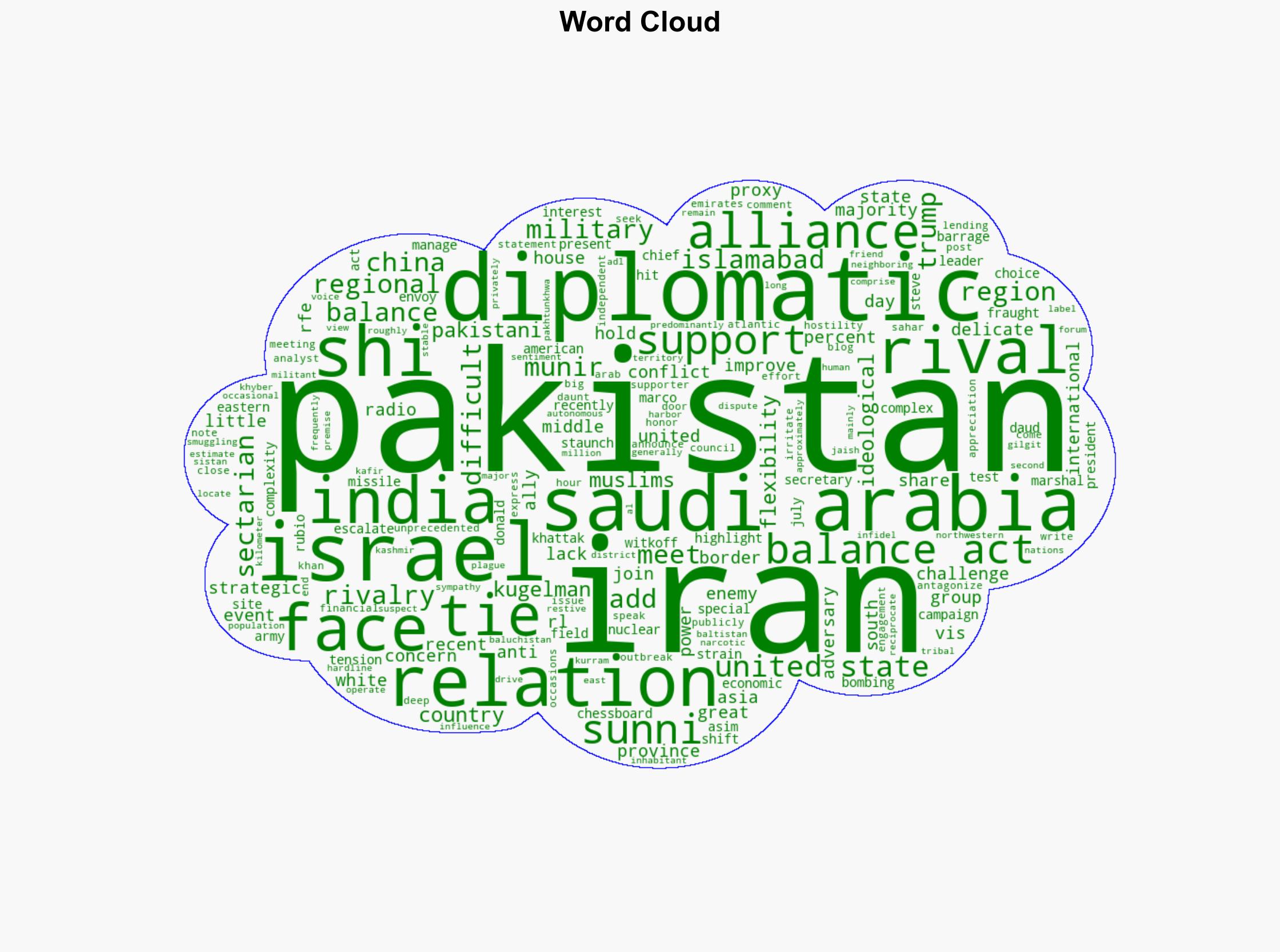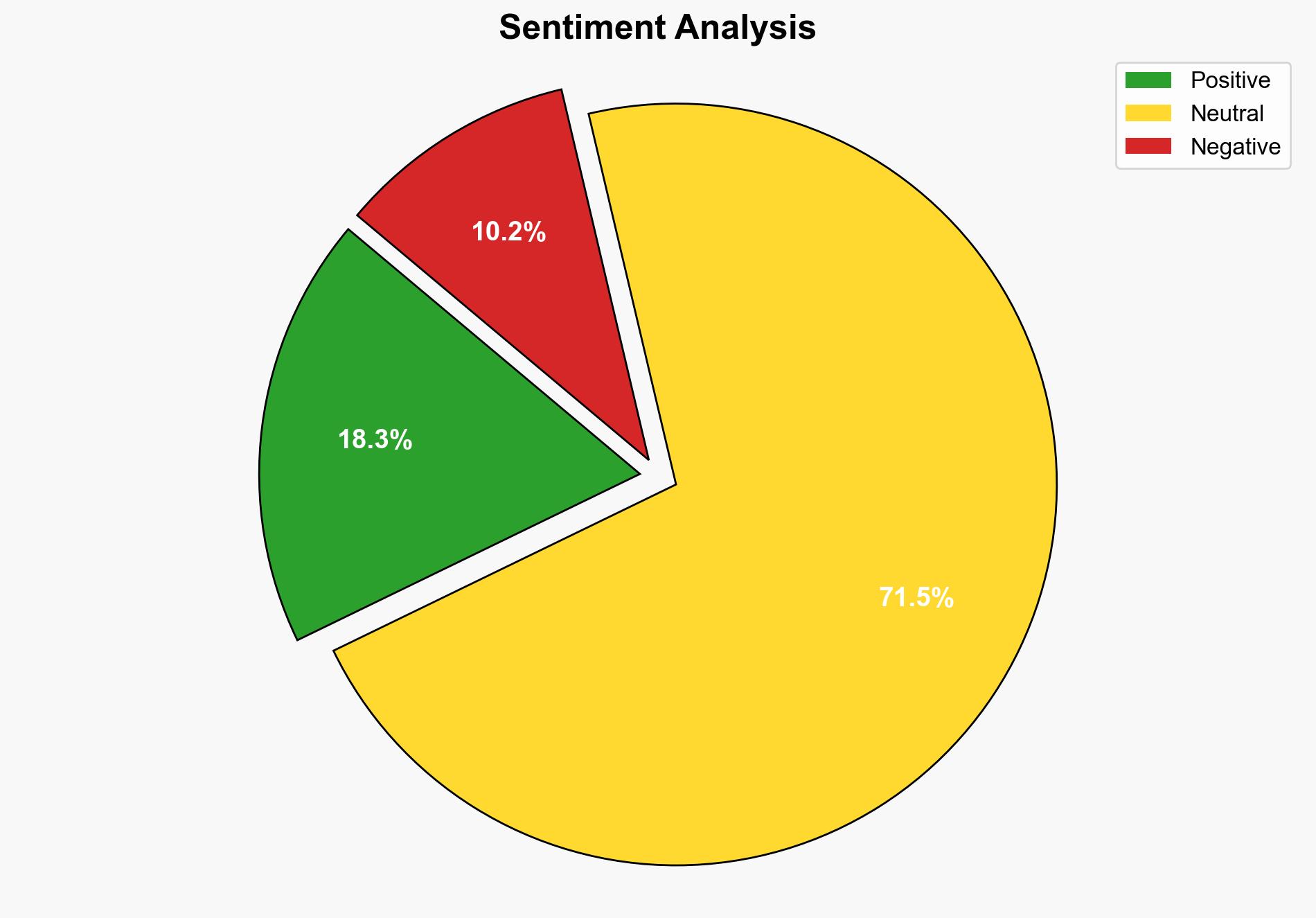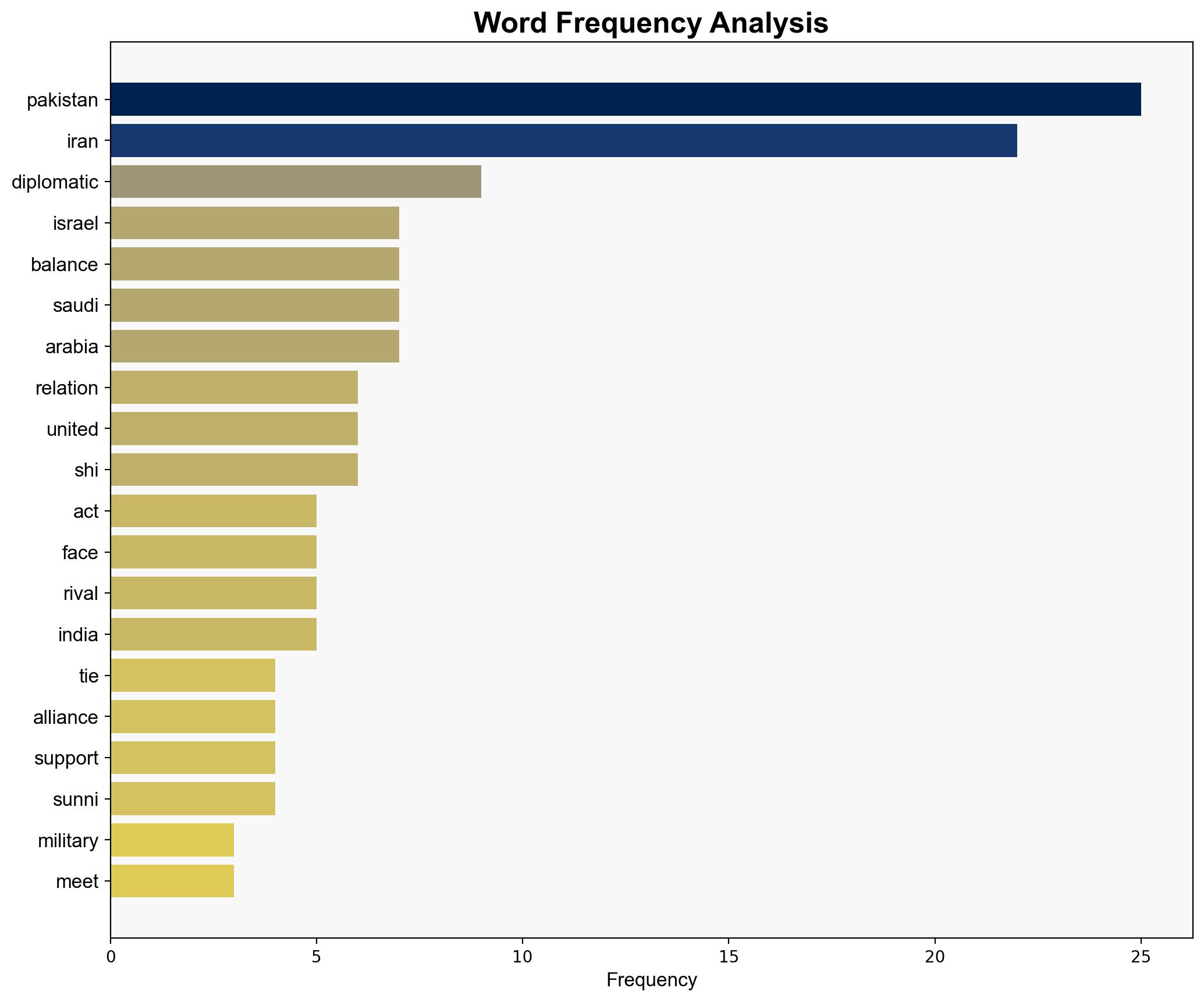Iran-Israel Conflict Puts Pakistan’s Diplomatic Balancing Act To The Test – Globalsecurity.org
Published on: 2025-07-08
Intelligence Report: Iran-Israel Conflict Puts Pakistan’s Diplomatic Balancing Act To The Test – Globalsecurity.org
1. BLUF (Bottom Line Up Front)
The Iran-Israel conflict is challenging Pakistan’s diplomatic strategy, requiring a nuanced balance between regional powers and global alliances. Pakistan faces a complex diplomatic landscape, needing to manage relations with Iran, Saudi Arabia, China, and the United States. Strategic recommendations include enhancing diplomatic flexibility and leveraging regional developments to maintain stability.
2. Detailed Analysis
The following structured analytic techniques have been applied to ensure methodological consistency:
Causal Layered Analysis (CLA)
At the surface, the Iran-Israel conflict escalates regional tensions, impacting Pakistan’s diplomatic relations. Systemically, Pakistan’s alliances with the U.S. and China are tested by regional dynamics. Worldviews are influenced by sectarian divides, with Sunni majority Pakistan balancing its ties with Shi’a Iran. Myths surrounding sectarianism and regional power struggles further complicate diplomatic efforts.
Cross-Impact Simulation
Pakistan’s diplomatic decisions may influence regional stability, affecting trade routes, security alliances, and sectarian tensions. The interplay between Pakistan’s relations with Iran and Saudi Arabia could alter regional power balances, impacting economic and military collaborations.
Scenario Generation
Potential scenarios include:
- Improved Iran-Saudi relations easing Pakistan’s diplomatic pressures.
- Escalation in Iran-Israel tensions forcing Pakistan to take a definitive stance.
- Increased U.S.-China rivalry impacting Pakistan’s strategic choices.
Narrative Pattern Analysis
Ideological narratives in Pakistan are shaped by sectarian identities and geopolitical rivalries. Anti-Shi’a sentiments and historical alliances influence public opinion and policy decisions, posing challenges to diplomatic flexibility.
3. Implications and Strategic Risks
The ongoing conflict presents risks of sectarian violence within Pakistan, potential economic disruptions, and strained international relations. The interplay of regional alliances could lead to increased military tensions or economic sanctions, affecting Pakistan’s strategic autonomy.
4. Recommendations and Outlook
- Enhance diplomatic engagement with both Iran and Saudi Arabia to mediate tensions and foster regional stability.
- Strengthen economic ties with China and the U.S. to mitigate potential economic fallout from regional conflicts.
- Develop contingency plans for various scenarios, focusing on maintaining internal security and economic resilience.
- Monitor sectarian narratives and address domestic tensions to prevent internal destabilization.
5. Key Individuals and Entities
Asim Munir, Donald Trump, Marco Rubio, Steve Witkoff, Daud Khattak, Sahar Khan, Michael Kugelman
6. Thematic Tags
national security threats, cybersecurity, counter-terrorism, regional focus





